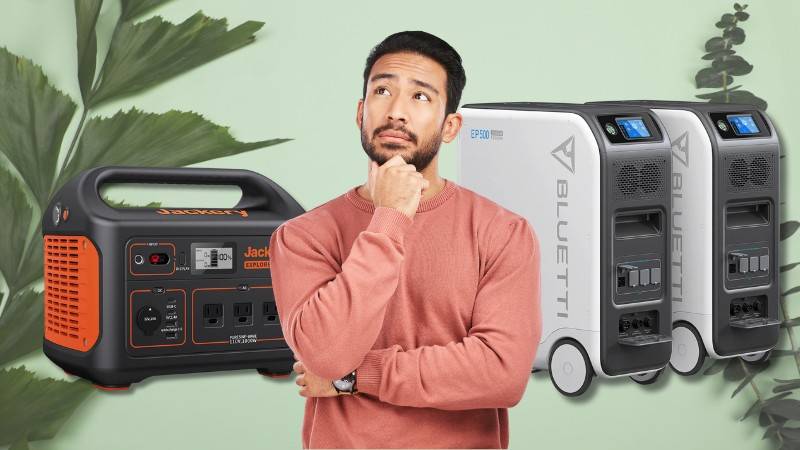Imagine a sudden power outage in the middle of a cold winter night, and you’re left without heat and light. Or imagine an intense summer storm that knocks out the electricity, leaving you without air conditioning and refrigeration.
In these situations, having a generator can be a lifesaver. But choosing the right size solar generator for your needs is crucial.
The right generator will provide efficient, safe, and cost-effective power, keeping essential appliances running when needed. In this blog post, I’ll guide you through the process of determining “what size generator to run a house”.
Stick with me, and by the end, you’ll know exactly what size generator you’ll need to efficiently power up your lovely home.
Key Takeaways
- Choosing the right size solar generator is essential to ensure safety, cost-effectiveness, and comfort during power outages.
- Common solar generator sizes range from 500 watts to over 6,000 watts for various types of homes.
- When selecting a solar generator, it is important to consider factors such as battery capacity and efficiency, wattage, size, weight, weather in your area, and other additional features.
Why the Size of Your Generator Matters
Let’s understand why the size of your generator is such a big deal. When we’re talking about ‘size,’ we’re actually referring to the power output of the generator — how much electrical energy it can produce.
You see, every appliance in your home, from your humble light bulb to that heavy-duty air conditioner, needs a certain amount of electricity to function.
Think of the generator as the heart of your solar power system. If it’s too small (under-sized), it’s like trying to pump blood through an elephant’s body with a mouse’s heart — it just can’t provide enough juice.
This can lead to power shortages and may even damage the generator or the appliances.
On the flip side, an oversized generator — a lion’s heart in a mouse’s body, to stick with our metaphor — isn’t a good solution either.
It would be like using a supercomputer to do basic arithmetic. An oversized generator could lead to wastage of electricity and higher installation, maintenance, and fuel costs.
To avoid these scenarios, we need to find the ‘Goldilocks’ size for your generator — not too small, not too large, but just right. And that, my friend, means getting into some technical details. You might also be interested in how solar generators work.
But don’t worry, I’ll walk you through it step by step.
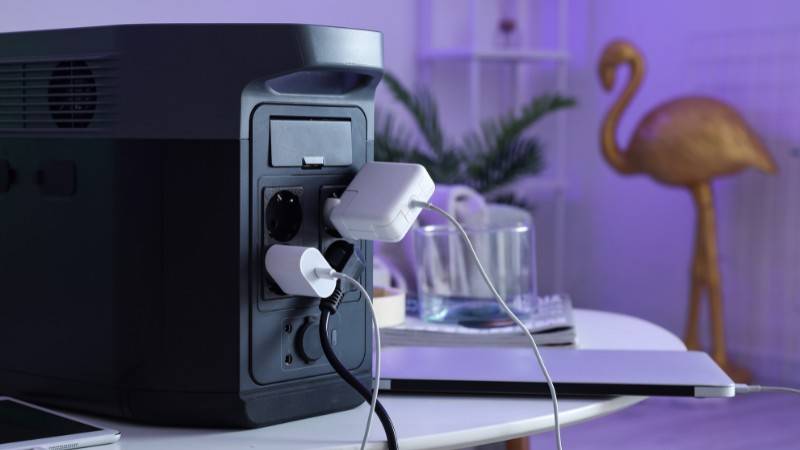
Downsides of an Oversized Generator
Alright, imagine buying a massive truck when all you really need is a compact car for your daily city commute.
It’s oversized for your needs, right?
Sure, it can carry a lot of load, but it’s also burning a lot more fuel and costing you much more to maintain. The same logic applies to our solar generator discussion.
Here’s the deal: an oversized solar generator can produce a lot of power — more than what your home needs. While that might sound like a good problem to have, it’s not.
Here’s why — the extra power produced by the generator isn’t used elsewhere.
It’s simply wasted!
We’re talking about your hard-earned money going into producing energy that’s never used.
But it doesn’t stop there. An oversized generator also comes with higher upfront costs. You’d be paying more for the generator itself and the setup costs.
Plus, the maintenance costs are generally higher for larger generators. In our eco-conscious world, it’s worth noting that this excess production can also lead to unnecessary environmental impact.
While it might be tempting to err on the side of ‘more is better,’ when it comes to solar generators, the smarter move is to figure out what’s ‘just enough.’
Downsides of an Undersized Generator
Now, let’s consider the other side of the spectrum — an undersized generator. Imagine trying to power a concert speaker with the battery from your smartphone.
You’d be lucky to get a whisper out of it!
An undersized generator acts in a similar way. It just can’t provide the electrical power needed to run your house effectively.
Here’s what can happen: the generator might not be able to power your essential appliances. Imagine a sweltering summer day and your generator can’t handle the air conditioner’s power needs.
Not a pretty picture, right?
But it’s not just about discomfort. Consistently running an undersized generator at maximum capacity to meet your power needs can lead to a quick burnout, and that means frequent, costly repairs or even early replacement.
And if that’s not bad enough, this overloading can even cause power surges that could potentially damage your precious appliances.
So, as with the oversized generator, the goal here is to find that ‘just right’ size. And for that, we need to do some calculations.
Let’s dig into that next.
Understanding Generator Sizes and Power Ratings
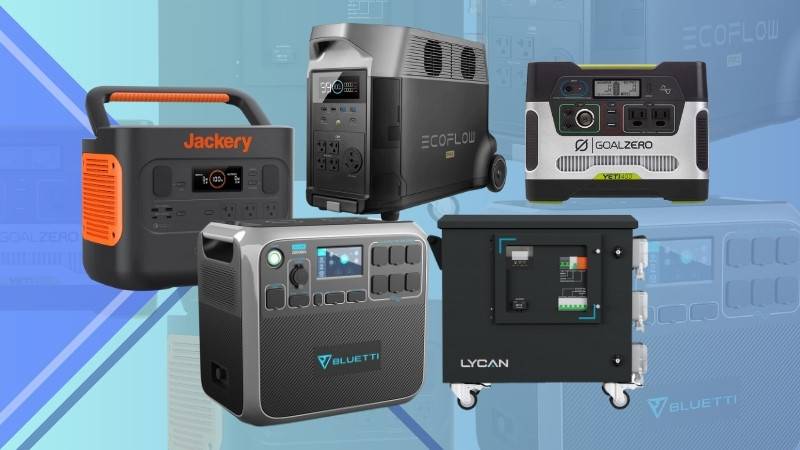
When we talk about the ‘size’ of a generator, we’re not referring to its physical dimensions.
Instead, we’re discussing its power output—essentially, how much electricity it can generate.
And that’s measured in watts (W).
So, when you see a generator described as ‘2000W’, it means it can provide 2000 watts of power. But it’s a bit more nuanced than that.
Generators have two power ratings: running (or rated) watts and starting (or surge) watts.
Rated or running watts are the continuous watts needed to keep appliances or systems running. Then, starting or surge watts are the extra power needed for two to three seconds to start motor-driven products like a refrigerator or AC.
Below is a table that displays various generator sizes and their corresponding power ratings:
| Generator Name | Rated Watts (Output) | Surge Watts (Output) |
|---|---|---|
| Bluetti AC200P | 2,000W | 4,800W |
| Ecoflow Delta Pro | 3,600W | 7,200W |
| Jackery 2000 Pro | 2,200W | 4,400W |
| Jackery Explorer 1000 | 1,000W | 2,000W |
| Bluetti AC500&B300 | 5,000W | 10,000W |
Don’t worry if this is a bit confusing right now.
As we go along, we’ll break down how to calculate your house’s total power needs and match it to the right generator size.
How to Calculate the Size of Generator You Need
Let’s get down to the nitty-gritty of calculating the right generator size for your house. It’s like cooking — you need to know what ingredients (or, in our case, appliances) you’ll be using and how much of each to get the perfect result.
This is a step-by-step process and might require some homework, but trust me, it’s totally worth it.
Step 1: List All the Appliances You Need to Power
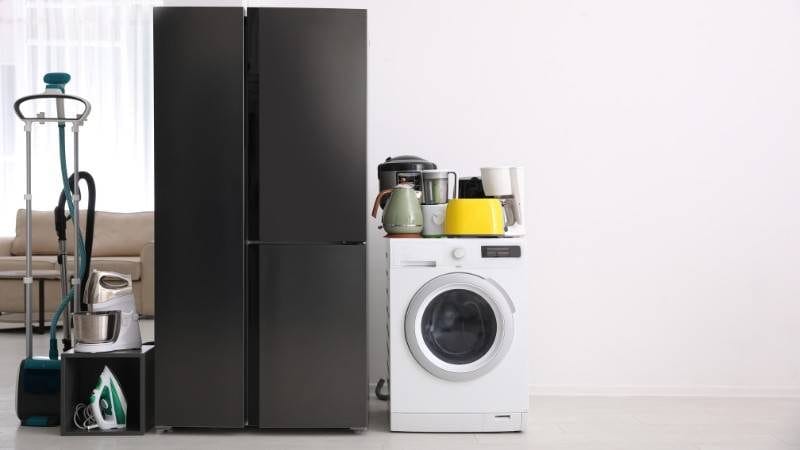
Start by listing down all the appliances you plan to power with your generator. This could be everything in your house during a power outage or essential items like refrigeration, heating or cooling, and lights for camping or RV use.
Consider appliances like:
- Refrigerator
- Air Conditioner
- Heating system
- Lights
- Washer and Dryer
- Computer
- TV
Step 2: Determine the Running and Starting Wattage of Each Appliance
The next step is to find the running and starting wattage of each appliance on your list. You can usually find these values in the appliance’s user manual or on its specification label.
If not, a quick internet search should help.
Remember, running wattage is the amount of power the appliance uses under normal operation, and starting wattage (usually higher) is the power it needs for the initial start-up.
Here are the typical wattage values for these appliances (values can vary based on specific models):
| Appliance | Running Watts | Starting Watts |
|---|---|---|
| Refrigerator | 180W | 1800W |
| Heating System | 1500W | 3000W |
| Lights (4x) | 240W (60W each) | 240W |
| Computer | 350W | 350W |
| TV | 100W | 100W |
Step 3: Add Up Your Total Power Requirements
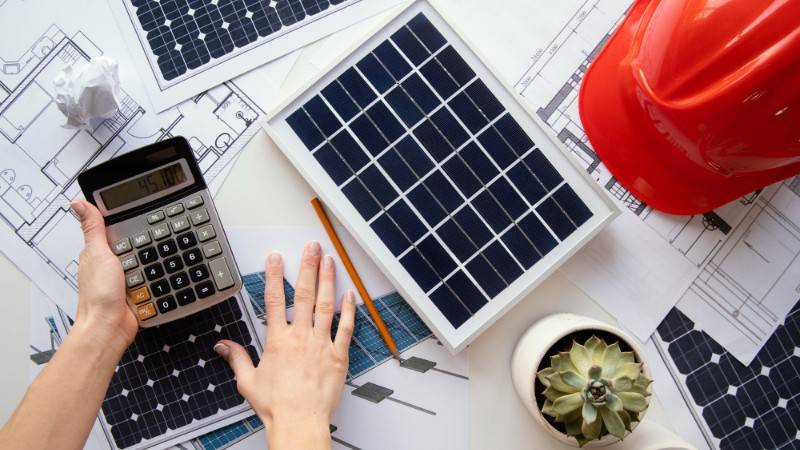
Now, add up the running wattage of all the appliances — this is your total running wattage. Then, find the appliance with the highest starting wattage — this will be your peak power requirement.
Your generator should be able to provide power for both of these requirements to run your house smoothly.
To find the total running wattage from my example before, we add up the running watts of all appliances:
180W (Refrigerator) + 1500W (Heating System) + 240W (Lights) + 350W (Computer) + 100W (TV)
= 2370W
Our highest starting wattage is for the Heating System, which is 3000W. This is our peak power requirement.
So, in this case, we would need a generator that can handle a running wattage of at least 2370W and a starting wattage of 3000W.
Remember, these are estimated figures, and your appliances’ exact power consumption might differ. Always check your appliance manual or specification label for accurate figures.
Examples of Generator Sizes for Different Types of Houses
Now that we’ve discussed how to calculate the generator size, let’s look at a few examples of what generator sizes are suitable for different types of houses and living situations.
Remember, these are only estimations to give you a ballpark idea.
The actual size will depend on the specific appliances and their power consumption in your house.
Case 1: Small Homes and Apartments
For small homes and apartments, you only need to power a few essential appliances like a refrigerator, a few lights, and a small air conditioning unit or space heater.
In this case, a smaller generator, say around 3000-4000 running watts, could suffice.
Case 2: Medium to Large Homes
If you have a larger home and you want to power more appliances, such as a central AC, a heating system, a washer/dryer, and more lights, you’ll need a bigger generator.
Here, you might be looking at a generator with around 6000-8000 running watts.
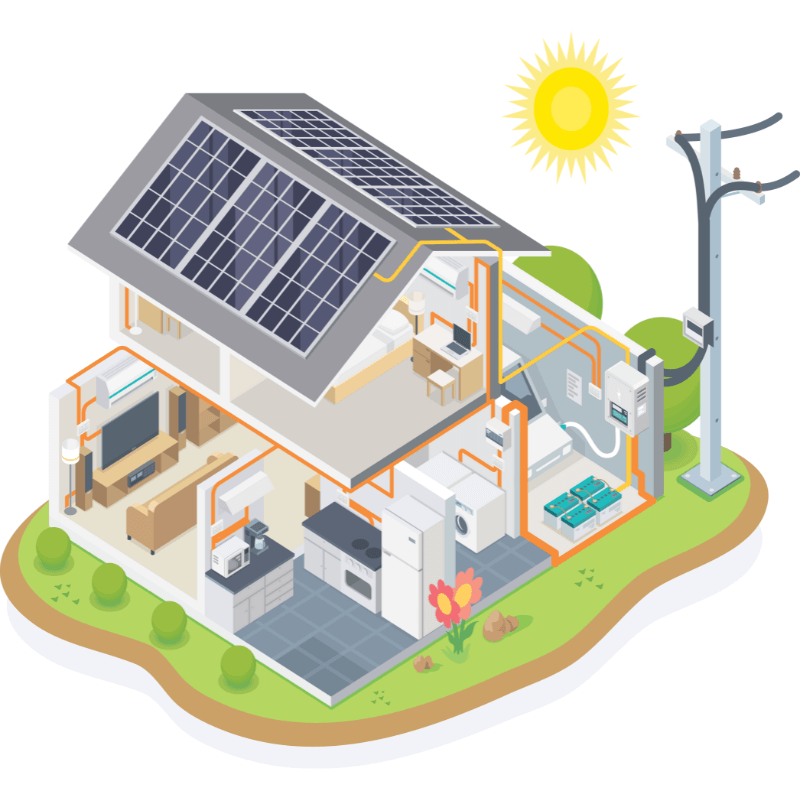
Case 3: Homes with Essential Medical Equipment
If you or someone in your family relies on powered medical equipment, such as an oxygen concentrator or a home dialysis machine, you’ll need to factor this into your calculations.
These devices often require a stable power supply, and their power needs can be significant.
In this case, determine the running and starting watts of the medical equipment and add that to your total. Depending on what other appliances you plan to run, you may need a generator size similar to a medium or large home.
Case 4: Whole House Generators
For those looking for a seamless transition during a power outage, consider a whole-house generator. These generators are designed to power your entire home, including all lights, appliances, and HVAC systems.
These are the largest and most powerful types of generators and can range from 10,000 running watts to 20,000 running watts or more.
As always, these are only estimated sizes. For an accurate generator size, calculate your power requirements as we discussed earlier or consult a professional.
Choosing the Right Generator: Other Factors to Consider
Size isn’t everything!
Though we’ve focused on the importance of correctly sizing your generator, there are several other factors you should consider when choosing a solar generator for your home.
Let’s discuss some of them.
Environment Considerations
Solar generators are a clean, renewable way to generate power, which is a big plus for the environment.
However, they do rely on sunlight to charge, so you’ll need to consider whether your location gets enough sunlight to make a solar generator a viable option.
For example, if you live in a region that has frequent cloudy or rainy weather, you might need to supplement your solar generator with additional power sources.
Noise Level
Solar generators have a significant advantage in this area — they’re incredibly quiet.
Unlike gas-powered generators, which can be quite loud and disruptive, solar generators operate with hardly any noise at all.
This could be a deciding factor if you’re living close to others or simply prefer a quieter environment.
Cost and Maintenance
Solar generators can be more expensive initially compared to traditional gas generators.
However, they have fewer moving parts, which can mean less maintenance in the long run. Plus, you’re not paying for fuel like you would with a gas generator.
Be sure to factor in these ongoing costs when comparing options.
Battery Capacity and Charge Time
These two aspects go hand in hand.
A larger battery capacity means the generator can store more power, but it also means longer charge times.
Analyze your power usage patterns to determine the ideal balance for your needs.
Portability
If you plan to use your generator for camping or RVing, consider the weight and portability of the generator.
Choosing a generator is a significant decision. It’s not just about power; it’s about choosing a generator that fits your lifestyle, your needs, and your home.
Don’t rush the decision.
Take the time to research and choose wisely. After all, the right generator can provide you with peace of mind for years to come.
Key Takeaway: What Size Generator to Run a House
So, we’ve taken quite a journey together today, haven’t we?
Let’s reiterate this: selecting the correct size of the generator is vital. An oversized generator can lead to unnecessary costs and energy wastage, whereas an undersized one can lead to power shortages and potential damage to both the generator and your appliances.
Hence, it’s essential to calculate your energy needs accurately before making a purchase.
But remember, size isn’t everything. Keep in mind other factors like environmental considerations, noise levels, cost, maintenance, battery capacity, charge time, and portability.
Consider all of these aspects to make a well-informed decision.
By taking the time to understand your needs and considering all the factors, you’ll ensure that you choose a generator that meets your power requirements and fits into your lifestyle.
So go ahead, take your newfound knowledge, and harness the power of the sun with confidence!
Frequently Asked Questions (FAQ)
The size of the house doesn’t dictate the generator size, but the appliances do. However, an 8-10kW generator might be needed for a house of this size.
For your air conditioner, purchase a generator with at least 3,000 watts of power to ensure it can start up properly. This way, you can be confident that your AC will always have the power it needs.
Yes, a 12 kW generator can run a house, but it depends on the total wattage of the appliances. It’s a great option for a whole-house solar generator.
A generator with 800-2000 running watts can typically power a refrigerator, but you should check the wattage requirements of your specific model.
A 20 KVA generator can run 5 to 6 AC units or one large central AC unit. Always check the AC unit’s power consumption first.

